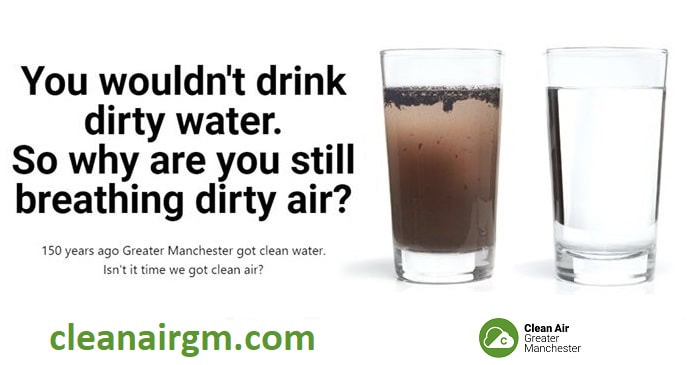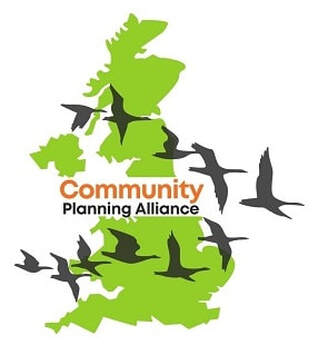(Site Path: Resources | Environment | Air Quality)
Air Quality Resources
|
Air pollution and air quality is an issue that impacts a large number of campaigns on our map. With this in mind, we have been supported by Andrew Jackson, Head of the Government's Joint Air Quality Unit (DfT/DEFRA) to develop a series of short events aimed at actively engaging member organisations and other community representatives in discussions about next steps in the campaign to drive improvements to air quality in the UK.
|
|
A recent report by MPs on the Environment, Food and Rural Affairs Committee highlighted that cleaner air and clearer skies were some of the few positives that many people experienced following the first covid-19 lockdown in March 2020. Sadly, readings have returned to previous levels and as stated in that report, air pollution remains the largest “environmental risk” to UK public health (it is linked to up to 64,000 early deaths a year and health problems caused by air pollution in the UK are estimated to cost society more than £20 billion a year, to say nothing about the impact on our bird, plant and wildlife populations). In addition, the report confirms that, as the pandemic progressed, evidence also began to emerge that air pollution might increase people’s chances of both catching covid-19 and dying from it.
Furthermore, in responding to the Coroner's Report into the sad death of Ella Kissi-Debrah in 2013, the Government has committed to:
- increasing public awareness about air pollution and expanding access to information
- augmenting the Air Quality Grant scheme by an additional £6m (this funding sits alongside the £880 million that has already been pledged for local authorities to develop and implement local air quality plans, including Clean Air Zones)
- commencing a public consultation on new legal targets for PM2.5 and other pollutants (with the aim that those new targets will be a legal requirement by October 2022). In setting these new targets, there will also be a commitment to significantly increase the monitoring network to capture more detailed air quality information across the country.
Engaging Communities in the Air Pollution/Air Quality Debate
With these commitments in mind, we held several initial sessions. The first event, which was held on 7th December 2021, focused on the Government's plan to introduce more rigorous targets for pollutants (you can access the slides and the event recording by clicking on the buttons below). The next session on 8th February 2022 looked at identifying ways of measuring and monitoring air pollution at a local level and considering opportunities to raise public awareness about the health impacts of air pollution. Ideas have already been suggested for other events, so there will be no shortage of proposals to engage communities in the race to tackle this "national health emergency". If you have any suggestions, please click on 'Get in touch' button below.
Useful Guides
Below are also a few useful guides on local information that will help you in any campaign. And a guide about the adverse consequences of leaving your engine idling.
IMPORTANT - Air Quality Survey
Further to our recent air quality events, we’d like to gather some information from individuals and groups to help us understand how engaged Local Authorities are with our communities.
This survey is short and you only need to complete the data that is relevant to you/your group. Any data collected will really help with our understanding of the nationwide picture, so please also share it with others who may be interested in the air quality/air pollution debate. Thank you.
We will post information about our next air quality webinar soon.
CPA Webinar: Engaging Communities in the Air Pollution/Air Quality Debate (Session 1)
The Community Planning Alliance has been supported by Andrew Jackson, Head of the Government's Joint Air Quality Unit (DfT/DEFRA) to develop a series of short events aimed at actively engaging member organisations and other community representatives in discussions about next steps in the campaign to drive improvements to air quality in the UK.
At the first of three sessions, recorded on December 7th 2021, our three distinguished speakers were:
- Andrew Jackson - Head of the Defra/DfT Joint Air Quality Task Force
- Professor Roy Harrison (OBE, FRS) - University of Birmingham
- Heather Henry (RN, BSc (Hons) Nursing, MBA, Queen's Nurse) - Founder of Breathchamps
We discussed the debate to date, on targets for air pollution, the complexities, the range of pollutants, the impact on our health and wellbeing, and much more.
Please Note: You can also view/download the slide presentation that accompanied this webinar by clicking here.
CPA Webinar: Considering Opportunities for Local Measuring & Monitoring of Air Pollution (Session 2)
The Community Planning Alliance held the second of three planned events aimed at engaging communities more actively in the air pollution/air quality debate on Tuesday 8th February 2022, continuing the (non-polluting) journey to take action to reduce the harmful contaminants in our air. This second session focused on increasing local measuring and monitoring of air pollution and how communities can get involved.
It was, once again, a very interesting and informative webinar, with three great guest speakers:
- Professor Stephen Peckham, who helped us to understand why we should be undertaking local monitoring of air pollution;
- Graham Turnbull, who provided a very practical demonstration, showing us how to build our own air quality monitors;
- Mike Josephs, who talked about rural air quality monitoring and the concept of the Smart Village.
Their contact details can be found in the presentation pack, which includes all the slides from the event.
CPA Webinar: Air Quality Targets - the Government's proposals
New Air Quality targets set out by the Government, for consultation until 27th June (2022), were discussed at our webinar on June 9th 2022.
The presentations were led by Delyth Dyne, Deputy Head Air Quality and Industrial Emissions at Defra, and Tim Dexter, Campaigns Manager, Asthma and Lung UK.
Delyth leads DEFRA's work on National Air Quality Strategy, PM2.5 targets and the Air Quality Management Framework for Local Authorities. She outlined the background, telling us why these targets and timescale have been proposed.
Tim focussed on the health impacts of poor air quality and advocated for more ambitious policies to tackle the health effects of toxic air.
Carbon dioxide emissions and woodland coverage where you live - courtesy of the Office for National Statistics
The levels of carbon dioxide (CO2) emissions and woodland coverage vary across the UK. These interactive maps let you see how your area looks, and how it compares with other areas.
UK Emissions Interactive Map - courtesy of beis.gov.uk
An interactive map showing a variety of pollutants.
The Driver’s Guide to Idling: Protect Your Engine and Licence - courtesy of Comparethemarket
We know our cars have an impact on the environment, but it’s how we use them that can really affect how detrimental driving is to the world around us. Engine idling is one of the behaviours we can easily change. Idling can not only waste fuel but can also lead to violations and fines. Here is a guide to inform readers of some aspects they might not know:
- Idling can leave behind residue in a car engine
- Leaving an engine on for a long period of time without moving can also drain a car’s battery
- Idling can be ticketed and fined, in the UK fees can range from 20–40 GBP.
Link: Engine Idling
Do you have or know of any resources that should be included in this library?
If so, please contact us today!


